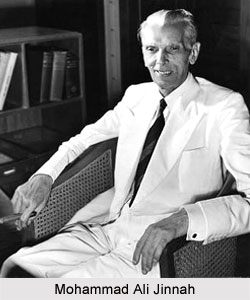 Partition of India was one of the historical steps taken on the basis of religion dividing the nation into two parts namely Union of India (also known as Republic of India) and Dominion of Pakistan (further divided into Islamic Republic of Pakistan and Peoples` Republic of Bangladesh) on 14th and 15th of August 1947. With the dissolution of British India the Partition of India was incorporated through the division of two provinces of Bengal and Punjab as Bengal was divided into East Pakistan and West Bengal and Punjab was further divided into West Punjab and East Punjab.
Partition of India was one of the historical steps taken on the basis of religion dividing the nation into two parts namely Union of India (also known as Republic of India) and Dominion of Pakistan (further divided into Islamic Republic of Pakistan and Peoples` Republic of Bangladesh) on 14th and 15th of August 1947. With the dissolution of British India the Partition of India was incorporated through the division of two provinces of Bengal and Punjab as Bengal was divided into East Pakistan and West Bengal and Punjab was further divided into West Punjab and East Punjab.
Origin of Partition of India
The partition of India had been the real instance of peoples` demand through their representatives. The initial demand for a separate state was made by an eminent writer and philosopher Allama Iqbal who raised his voice for a separate electorate for the less represented group of Muslim Communities. With the passage of time this claim became the base of the newly emerging state of Pakistan. Among other reasons division of Indian subcontinent was important for various reasons. One such reason had been the old British policy of divide and rule which came into action in case of division of India and Pakistan. Also with the communal awards the hatred rather differences increased on both sides which could only be pacified through division of state. It was further claimed that the British wanted to make the Muslims their allies to oppose the apparent threat of the Hindu educated class. In order to gain support from the Muslims, the British supported the All-India Muslim Conference. They infused the notion that the Muslims were a separate political entity. In addition to that the Muslims were given separate electorates in local government all over British India by 1900s. With such moves the British followed a divide-and-rule policy in India. Hindus and Muslims were two separate identities which needed to be separated. All this growing anxiety only brought India closer to division. As a result such demand got its shape in the 1935 session when a formal resolution was passed claiming the separation.
Partition of India
The partition took place at the midnight of 14th and 15th August 1947. Mainly based on Famous Mountbatten Plan, the partition included division of geographical areas, population exchange, administrative structure and army, navy and air force as well. The main affected areas were Bengal, Punjab, Sindh and Jammu & Kashmir. Geographically the division included the division of rivers as well as land areas; the exchange of population meant movement of 14.5 million people crossing the borders with a total of 7,226,000 Muslims and 7,249,000 Hindus from each side.
At the midnight of 14th august the ceremony of independence was organized a day after the birth of new state of Pakistan with New Delhi as India`s capital.
Impact of Partition of India
On 7th August Mohammad Ali Jinnah along with his old associations went to Karachi. The Constituent Assembly of Pakistan met on 11th August and elected Jinnah as its President. Lord Mountbatten went to Karachi on 13 August and on the following day addressed the Pakistan Constituent Assembly. He attended the inauguration ceremony at Karachi. The birth of Pakistan was an eventful occasion in history. Officially, Pakistan became a Dominion on 15 August 1947, Jinnah was sworn in as Governor-General and Liaqat Ali Khan was sworn in as the new Pakistan Cabinet.
The effect of Partition was deep rooted which raised some major issues of the day. One such issue had been the issue of refugees which remained the most painful result of Partition for both the nations. The city of Delhi received the maximum numbers of refugees and overall 35000 refugees landed up in the northern part of India including areas of Panipat and Kurukhshetra which were further used as camps for them. Huge expansion of cities took place which brought new areas in every city of northern India.
Thus, the Partition of India did not remain a historical event only but came out as the most painful event of passed history. It affected not only the physical location of people but their psychology as well. Ending up into brutal riots all over the country the partition of India is regarded the bitterest experience of modern India.






































